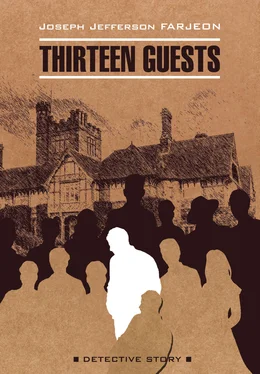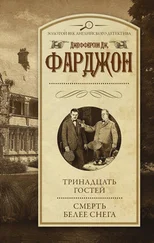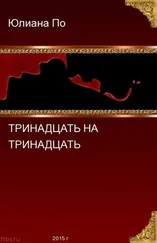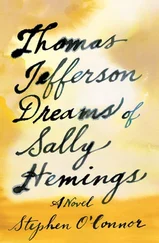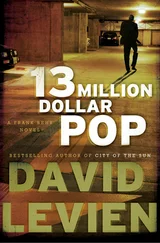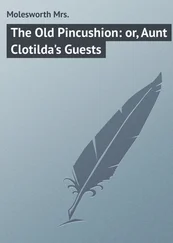Bultin smiled faintly. He knew that, behind his polished badinage, Lord Aveling was just a little anxious about him. This week-end was a sort of bribe. The tobacco and beads for the naughty Indian with the scalping-knife.
Then Lord Aveling turned to the last of his guests to enter through the front door. Sir James turned also with a sudden sense of responsibility. He was still leisurely and unflurried, but a little of the rich warmth left his tone as he said:
“How well we have arranged this! I arrive just in time to perform the introductions. Mr. and Mrs. Chater, Lord Aveling.”
John Foss had said he was not superstitious, but he had been watching the front door from his couch, and counting. Zena Wilding, ten. Lionel Bultin, eleven. Who would enter first of the last couple?… The man—no, he had paused on the threshold. The woman preceded him. Mrs. Chater, twelve. Mr. Chater, thirteen....
The new guests dissolved to their respective rooms. Dinner was at eight, and bags had to be unpacked and clothes changed. Lionel Bultin followed a servant up the soft stair-carpet to a room on the second floor. The artist, Leicester Pratt, wagged a hand from an easy-chair as he entered.
“Hallo, Lionel,” said Pratt. “We’re to be stable lads together. I hope you don’t mind? There’s no way out, if you do. It was my idea.”
Bultin did not mind. His invitation to Bragley Court had also been Pratt’s idea. It was Leicester Pratt who had lent Bultin fifty pounds ten years ago, at the critical moment of the journalist’s career. Pratt was then an unknown artist, doing infinitely better work than he was doing to-day. Pratt had discovered Bultin, and in return Bultin had discovered Pratt. No two men had helped each other more, or understood each other better.
“Well?” queried Bultin, after five minutes of silence.
Pratt laughed.
“You know, I’m quite a little child at heart, Lionel,” he answered. “I love to call you Lionel, and even more I love to make you say, ‘Well?’ I believe I’m the only person who can do it outside the King and Mussolini. Lionel Bultin, purveyor of world news, world gossip, world washing, authority on Eden’s size in collars and Greta Garbo’s lip-stick, asking me for information! Admit it’s a score!”
“I don’t ask even little children twice,” observed Bultin, removing one of Pratt’s coats from a hook so that he could use the hook for one of his own.
“You’d ask this child twice, if it were necessary,” retorted Pratt. “You see, I have the advantage of not being a sentimentalist. You’ve grown so fond of life that you will woo it with any weapon. I dislike life so much that I’m without fear. Once life begins bargaining for my heart, I’ve done with the jade! Yes, and here’s an interesting thing,” he added. “You couldn’t commit suicide if you tried. If ever I decide to, I won’t hesitate. Posthumous opinion can find me out, if it’s amused—I shan’t be here.”
“The little child is objectionably precocious,” commented Bultin, quite unmoved. He rather enjoyed being thought a sentimentalist. “Get on with it.”
“I understood you never asked twice!” jeered Pratt. “‘Get on with it,’ is your second ‘Well?’ camouflaged. All right. Here goes. News from the advance guard, for Bultin’s column, ‘How the Wind Blows,’ preferred by ninety-nine per cent. of the population to Hamlet, the Bible, and Omar Khayyám. Paragraph One. ‘Miss Zena Wilding, age thirty-two by the kindness of her friends, forty-two by the unkindness of her enemies, and thirty-eight by the justice of God—’”
“Thirty-seven,” interposed Bultin.
“‘—is an interesting visitor at Bragley Court this week-end. She has long awaited the really big theatrical chance she so thoroughly does not deserve. My little leopard informs me that, if she is very good, but perhaps not too good, she may receive the promise of the necessary backing by Monday next.’”
“I already knew that,” said Bultin.
“Your comment was inevitable,” replied Pratt.
“She first met the backing on the Riviera,” said Bultin, “where she went to recuperate after a serious illness. Cause and nature of illness not known.”
“And possibly not for publication when known,” added Pratt. “Paragraph Two. ‘The celebrated artist, Leicester Pratt, who has the world of portraiture temporarily at his feet, who calls a scarcely less celebrated journalist by his Christian name, and whose bow ties become increasingly flowing, has been at Bragley Court for several days, and is now completing a portrait designed for next year’s Royal Academy of Lord Aveling’s only daughter, the Honourable Anne Aveling.’ Kindly turn that paragraph into a column.”
“Does this window look out on the back?” said Bultin.
“It looks out on the studio,” answered Pratt, “where the aforementioned masterpiece is in process. Paragraph Three. I think you’ll like this one better. ‘It is interesting to find Sir James Earnshaw among the guests at Bragley Court. It is well known that he does not hunt stags for the pleasure of it. Is he hunting anything else? My little leopard informs me that, if Sir James is to survive politically, he must turn Labour or Conservative, and he would be given the hand of the Honourable Anne Aveling if he decided to survive as a Conservative. This would not outrage Sir James’s private political convictions, because he hasn’t any, and then Lord Aveling might himself survive as a Marquis instead of a mere Baron, in virtue of the additional vote he brought to the Conservative Party.’”
Bultin condescended to turn away from a wardrobe he had been examining, and fix Pratt with a rather fish-like eye.
“Really?” he said.
“Really,” nodded Pratt. “Thank you for your passionate interest. I charge 3/10 for that one. But you can have the next paragraph for nothing. ‘Miss Edyth Fermoy-Jones is studying Nobility at first-hand. This is a pity, because we shall now lose those delicate flights of fancy that have illuminated so many of her previous volumes on High Life, and which once caused a Countess to bathe regularly in expensive hock. My little leopard tells me that her next novel will open with an accident to a young man at a railway station. A very beautiful widow will convey the young man to an ancestral home, will fall in love with him, and will discover that he is really a necklace thief. When a celebrated artist is murdered for painting a mole on the neck of a débutante, the young man will be arrested for the crime, and only the beautiful widow will know that his heart was too pure to devise anything worse than stealing necklaces.’”
“Will it come out that the real murderer of the artist was a famous journalist?” inquired Bultin.
Leicester Pratt laughed, and ran on:
“But the next paragraph is worth another 3/10. I might even work you up to four bob. ‘If Lord Aveling, already secretly harassed for funds, becomes a Marquis, how will he meet enhanced expenses? Perhaps—my little leopard tells me—Mr. and Mrs. Arthur Rowe, who have made a fortune from pork and who are anxious to emerge from the sausage-skin that has encased them so long, could supply the answer. They and their charming daughter, Ruth, have been staying for some days at Bragley Court, and if Ruth were launched into Society with a Capital S, it is possible that Lord Aveling would be able to support a marquisate. And, incidentally, to justify the expense of backing a show, while waiting.’”
Bultin refused to register any gratitude.
“Who is the attractive widow?” he asked.
“Nadine Leveridge,” sighed Pratt, in mock disappointment. “Well, if I can’t interest you above-stairs, let me try below-stairs. Leopards also prowl in basements. Do not be surprised if you are given bamboo-shoots for dinner to-night. We have a Chinese cook. No good? I’ll try again. We have something in the domestic line more attractive than a Chinese cook—a very pretty maid. Name, Bessie. Delightful figure. Make a good model. But when this was suggested to her, she was filled with charming confusion.” He rose and stretched himself. “I shall waste no more time over you, Lionel. You’re not worth it. I shall take a stroll before dressing.”
Читать дальше
